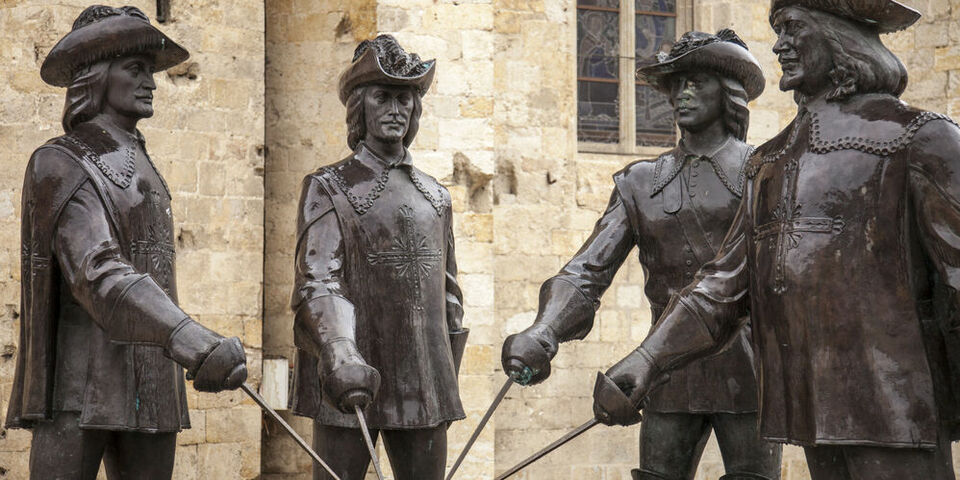TU/e, WUR, UU and UMC Utrecht are now really starting their alliance
Over the next eight years Wageningen University & Research, Utrecht University, University Medical Center Utrecht and TU/e will invest 100 million euros into their knowledge alliance. Half of that amount will come from the institutions themselves, the rest of it they expect to get from their partners in industry and society and from external funds. For students, taking courses at a partner institution will become easier. From May 2021, students will be able to enrol through a newly developed platform.
In March the coronavirus was the big killjoy for the live event in music complex Tivoli, where the TU/e, Wageningen University & Research, the University Utrecht and University Medical Center Utrecht would announce that they will be working together even more intensely in the future. The meeting was cancelled and a new date had to be found. It was found. Wednesday 2 December, with Minister of Education Ingrid van Engelshoven in attendance, the new knowledge alliance will be launched during an online event.
The difference with eight months ago is that the four institutions have stretched their commitment to invest in the alliance up till 2028. At first the Executive Boards would see after four years if they were willing to invest for another four years. The coming eight years each individual institution will reserve a bit over one and a half million euros for it each year. That will result in a total amount of fifty million euros. The alliance is expecting to get a matching amount of fifty million euros from their partners in industry and society and from external funds.
In the press release the four institutions say that they are ‘combining their complementary expertise to find solutions to issues involving health, food, energy and sustainability'. The motto from March still stands: ‘Challenging Future Generations’.
Themes
One of the themes of the cooperation is Preventive Health. By means of artificial intelligence and basic research (e.g. with organoids), better early detection methods will be developed and it will become possible to prescribe medication that is adapted to each individual patient. A second theme of the cooperation is Circular Society. The transition to a sustainable society is one of the European Commission’s top priorities. Its aim is to achieve a fifty percent reduction in CO₂ emissions by 2030. The partners have been cooperating in the field of solar fuels and the modelling of climate change for some time now. Within this new initiative, new methods will be developed to reduce the impact on the environment and limit the harmful effects of climate change and pollution on health.
Young, prominent researchers of the institutions have been asked to take the initiative. To this end, the representatives of the four ‘Young Academies’ of the institutions have joined forces. They advocate thinking outside the box and encourage the institutions to take risks. With the recent start of the Center for Unusual Collaborations (CUCo), in which six million euros will be invested for the coming four years, that already leads to unexpected results.
The institutions will make it also possible to conduct research or take courses at a partner institution without financial or administrative barriers. Employees will be able to use each other’s labs and research equipment, and there will be more double appointments.
New platform
For students, taking courses at a partner institution will be convenient and easy. From May 2021, students will be able to enrol through a newly developed platform. The knowledge alliance will also focus on new teaching methods, such as interdisciplinary project groups in which students from different institutions work on specific issues (the ‘challenge-based learning’ framework concept).
Robert-Jan Smits, President of the Executive Board of TU/e, says that academic institutions have a joint responsibility to find solutions to the major societal challenges facing the Netherlands and Europe. "This is a terrific, quality-driven alliance and highly complementary, which means that we have outstanding odds of contributing solutions and making a real impact. My expectations are very high."
‘What is the alliance’s social impact?’ That question will be adressed on Wednesday 2 December from 14:00 till 16:00 PM in the online kick off event, for which you have to register. Finally, young researchers from the four institutions will give a preview of unusual interdisciplinary collaborations between the four institutions.


Discussion